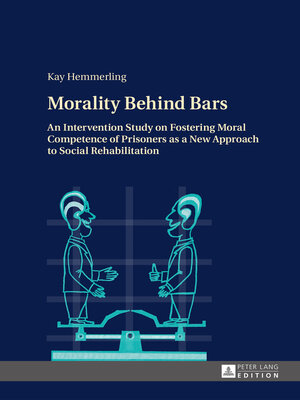Morality Behind Bars
ebook ∣ An Intervention Study on Fostering Moral Competence of Prisoners as a New Approach to Social Rehabilitation
By Kay Hemmerling

Sign up to save your library
With an OverDrive account, you can save your favorite libraries for at-a-glance information about availability. Find out more about OverDrive accounts.
Find this title in Libby, the library reading app by OverDrive.



Search for a digital library with this title
Title found at these libraries:
| Library Name | Distance |
|---|---|
| Loading... |
Prisoners prefer moral ideals like justice and responsibility just as much as non-prisoners. However, they lack moral competence, which Georg Lind has defined as the ability to solve conflicts through deliberation and communication rather than through violence, deceit and power. The data of this experimentally designed intervention study show that imprisonment mostly makes things worse. It leads to a regression of moral competence. Further, these data show that – with appropriate training methods like the Konstanz Method of Dilemma Discussion (KMDD) – moral competence can be effectively and sustainably fostered. The KMDD lets participants learn to solve stressful morally dilemmatic moments with mutual respect, thinking and discussion – the keys to a non-delinquent life in society.







